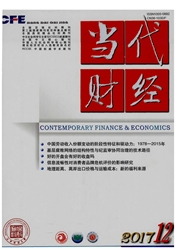

 中文摘要:
中文摘要:
在分析财富效应争议的基础之上,将消费的影响因素分成控制性因素与主导性因素,并利用1999—2011年31个省份的数据,建立了稳健的面板数据模型,不但得出了财富效应的重要变化特征,而且得到了一些重要的控制性因素对消费的影响特征。结论为:我国的住房财富和股票财富都存在正的财富效应,但住房的财富效应强于股票的财富效应;城镇居民的收入仍是消费的主导性影响因素;社会保障水平和社会保障覆盖率在当前阶段仍有助于消费支出的增加,且社会保障水平对消费的影响强于社会保障覆盖率对消费的影响;少儿抚养系数总体上是促进了消费的增长。
 英文摘要:
英文摘要:
Based on the analysis of disputes on the wealth effect, this paper separates the influ- encing factors on consumption into controlling factors and dominant factors. Besides, by making use of the data of 31 provinces from 1999 to 2011, it establishes a stable panel data model, from which not only the important characteristic changes of wealth effect but also some important affecting char- acteristics of controlling factors on consumption are drawn. The conclusion is as follows: both China' s housing wealth and stock wealth have positive wealth effects, but the housing wealth effect is stronger than the wealth effect of stock. The income of urban residents is still the dominant influenc- ing factor on consumption. The social security level and social security coverage still contribute to the increase in consumer spending, and the impact of the level of social security is still stronger than the impact of social security coverage on consumption at the current stage. The child dependency coeffi- cient in general has promoted the growth of consumption.
 同期刊论文项目
同期刊论文项目
 同项目期刊论文
同项目期刊论文
 期刊信息
期刊信息
